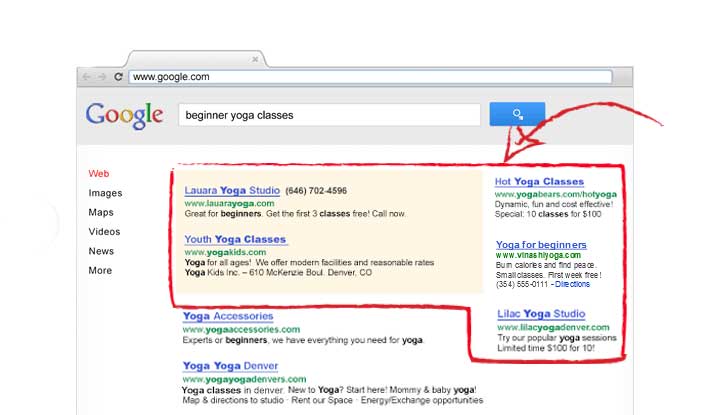Google has become synonymous with the Internet. The Silicon Valley search giant is one of the largest companies in the world, and its products and services are as ubiquitous with Internet use. These days you can use Google to search for anything on the web, send email (and get your daily dose of cat videos). And if you own an Android smartphone or tablet, you’re availing of Google’s services; your life is even more integrated into the Google ecosystem than you previously thought.
Google’s robust offering does come with a tradeoff, although it is one many would argue is well worth it—advertisements. Google has an extensive advertising network that allows users to search, visit YouTube, and host photos and files for free. Because of the millions of users that Google’s various platforms reach every day, Google is one of the most enticing mediums to aid in getting your name out there.
As the owner of a small business, with a company website, one of the best ways to promote your offering is to buy into this extensive advertising network. To start, an understanding of two components—AdWords and AdSense—is essential.
AdWords: Boost Website Traffic and Sales
AdWords appears on Google’s (search engine results pages) SERPs, and is integrated into natural, organic search results. These ads leading back to your company website appear under “Sponsored Links” or something to that effect. By definition, “The choice and placement of the ads is based in part on a proprietary determination of the relevance of the search query to the advertising copy . . . AdWords offers pay-per-click, that is, cost-per-click (CPC) advertising, cost-per-thousand-impressions or cost-per-mille (CPM) advertising, and site-targeted advertising for text, banner, and rich-media ads.”
Essentially, you give Google a list of relevant keywords associated with your business, and links to your website will pop up whenever an online searcher searches for anything related to those keywords. The best part is this: you are only charged when someone clicks on your links.
Quite simply, AdWords can be considered capitalist advertising because you don’t pay anything upfront, you only pay when someone clicks on your links. Whoever pays the most gets the best ad placement in search results.
AdSense: Displaying Google Ads on your Site
On the other hand, AdSense is a platform in which webmasters sign up with Google to enable advertising on their site. Upon sign up, Google will appraise your site based on the quality of your content. You are then given a code that, once embedded into your website code, will serve automatic text, image, video, or interactive media advertisements targeted to site content and audience. You are also in charge of where the ads appear on your site.
Upon Google’s review of your website, it develops a list of keywords that match your site’s content. If your keywords match the ones that advertisers bid on, their ads will appear on your site. Keep in mind that while AdSense is a great way to earn passive income—many bloggers make a living from their AdSense revenue alone—you will need extremely high traffic to make it viable.
AdWords vs. AdSense: Which Should We Use?
Think of it this way—AdWords is more suited to more commercial-centric website owners who wish to get people to find out about their products and services (which leads to visits, and, coupled with good SEO practices, conversions). AdSense, on the other hand, is a better fit for publishers—people who create content for people to read and view online.
Morrys Sarmiento is a web content writer whose main interests are online marketing, lifestyle, and business management. Among his interests outside the profession are football, music, theories of personality, philosophy, gaming, and creepy stories. Follow @morrysxi on Twitter.
© YFS Magazine. All Rights Reserved. Copying prohibited. All material is protected by U.S. and international copyright laws. Unauthorized reproduction or distribution of this material is prohibited. Sharing of this material under Attribution-NonCommercial-NoDerivatives 4.0 International terms, listed here, is permitted.













